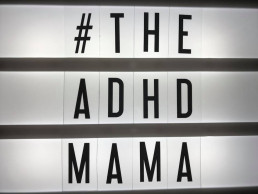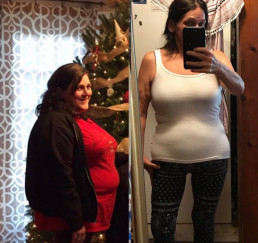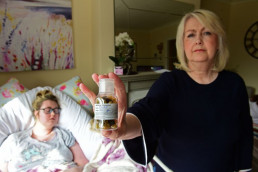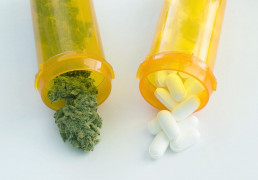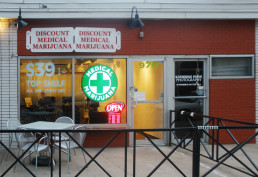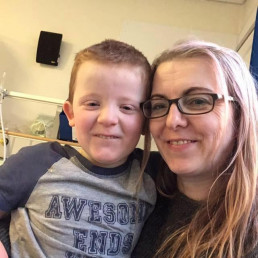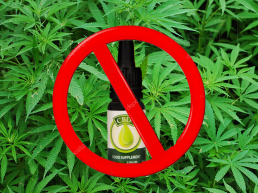Zimbabwe legalises cannabis for medical and scientific purposes
Zimbabwe legalises cannabis for medical and scientific purposes
- Zimbabwe becomes the second African nation to legalise cannabis for medical and research purposes
- Lesotho, a tiny nation became the first in Africa to issue a license for medical cannabis last year
- 5-year licenses will allow holders to cultivate, produce and sell medical cannabis products
- Cultivation of cannabis previously carried a potential 5-year sentence
- Recreational use remains illegal
Zimbabwe became the second African country to legalise cannabis for medical and scientific purposes last week.
Health Minister, Dr. David Parirenyatwa, published the new regulations on Saturday, outlining details which allow individuals and business to be granted licenses to cultivate cannabis, known locally as mbanje.
The five-year licences will allow holders to grow, possess, transport and sell raw cannabis and medical products, such as oils.
The new laws mark a distinctive shift away from a traditionally tough stance on cannabis in Zimbabwe, where possession and cultivation of cannabis were previously punishable by up to 12 years in jail.
Recreational use will remain illegal.
“The application shall contain, the maximum quantity expressed as net weight in grammes, of fresh cannabis, dried cannabis, cannabis oil to be produced by the applicant under the licence and the production period and the maximum number of cannabis plants to be sold or provided.“
– Zimbabwe Cannabis Proposals
To be granted an official license, applicants must submit detailed plans of their proposed production site and yield to government officials.
To qualify for a license, individuals must be Zimbabwe citizens or residents, or, alternatively, be granted a waiver issued by the minister.
Those previously convicted of drug offences will not be blocked from applying.
Lesotho became Africa’s first State to legalise cannabis for medical production last year.
One of the primary motivators for legalisation is the desire to bring in new revenues for the Zimbabwean economy.
Discussing the proposals last year, Obert Mpofu, the then investment minister, said a Canadian firm had applied to the government for a permit to produce the drug in planned special economic zones designed to lure foreign investors. Zimbabwe’s decision to legalise medical cannabis pushes Britain’s medical services behind the rest of the world.
Patients in Africa now have greater access to safer medication than those in Britain: a national disgrace.
"Cannabis allows me to be the parent I always knew I could be" - Mother with ADHD uses medical cannabis to help raise her children
“Cannabis allows me to be the parent I always knew I could be” – Mother with ADHD uses medical cannabis to help raise her children
- Canadian mother, Laura, claims cannabis makes her a better parent
- Laura suffers from Attention Deficit Hyperactive Disorder (ADHD)
- Laura has been blogging about how medical cannabis has changed her life as a parent since January
- Anecdotal accounts and studies have found ADHD patients are finding success with medical cannabis treatments
- Can cannabis really make ADHD patients better parents?
As more countries and States legalise cannabis worldwide, we are learning more about the benefits of the once demonised medicinal herb.
The idea that cannabis could help you become a better parent would have been laughed out the door years ago, but now, more and more parents are finding that cannabis is actually helping them be better parents.
Laura Poirier, 31, from Canada, is one of those parents, but with one difference: Laura was diagnosed with Attention Deficit Hyperactive Disorder (ADHD) at the age of 10.
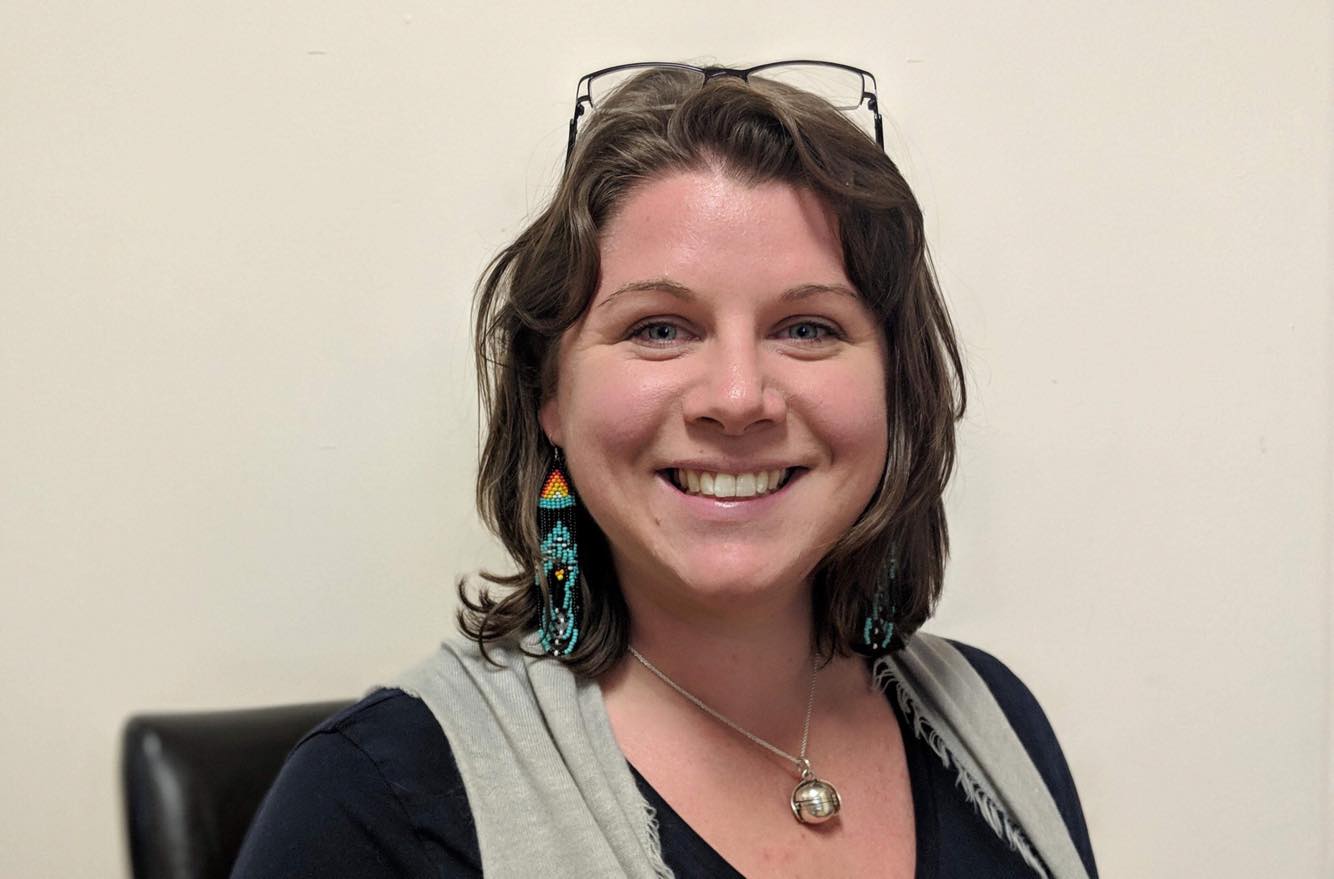
ADHD is a neurodevelopmental disorder characterised by a lack of concentration, hyperactivity, high anxiety and impulsivity, affecting all areas of life for those diagnosed. Laura has been blogging about her medical cannabis journey on social media since the start of the year, telling hundreds of followers about how medical cannabis has changed her life as an ADHD parent, allowing her to be a more attentive and calm parent.
Discussing her medical cannabis journey, Laura explained how ADHD affected her life before discovering the benefits of cannabis:
“I was diagnosed with ADHD at the age of 10.
“This affects every area of my life. From household chores to organizing my life to work. I forget important dates or appointments.
“I get frustrated if there are too many distractions, especially when my traditional medications cut out around 4pm, all chaos breaks loose in my mind.
“I annoy people, which affects my mental health the most.
Those diagnosed with ADHD face a potential lifetime of dangerous pharmaceutical medications.
The most common medication prescribed to those diagnosed with ADHD is Methylphenidate, sold under a variety of brand names, with ‘Ritalin’ or ‘Adderall’ being the most common.

Methylphenidate may improve focus, and decrease impulsivity and hyperactive behavior, two hallmark symptoms in some patients with the condition, but at a cost.
According to the FDA, methylphenidate is a federally controlled substance (CII) because it can be abused or lead to dependence.
The most common side effects are: depression (suicidal thoughts), insomnia, mood swings, decreased appetite and weight loss, stomach ache, nervousness, severe headaches, sweating, shaking, fever, increased heartrate, and dizziness.
There is also a high potential for abuse of Methylphenidate-based medications, especially as it shares a very similar chemical composition as Methamphetamine and Speed.
Laura went through the ordeal of being prescribed a variety of these medications:
“I have been on Ritalin, Dexadrine, Adderall (25mg slow release) and Straterra (40mg)
“Adderall caused appetite issues.
“Not eating during be day, over eating at night. Insomnia and blood pressure problems.
“Straterra was wonderful, except for one horrible side effect: constipation. Extreme constipation.
“I went 3 weeks without a proper bowl movement. I’m still suffering with pains in my abdomen. It was horrendous.”
Many medical marijuana patients began their journey looking for a medical alternative which could ease these side-effects.
Laura seems to be an exception. She explained how an educational TV show enlightened her to the potential of cannabis:
“The side effects, surprisingly, didn’t influence my decision to try cannabis.
“It was actually a video I found on social media: “Adam ruins everything,” an online show. It’s funny, you should check it out.
“There was an episode on cannabis and I was shocked about the history of cannabis. That’s what changed my mind.”
The negative stigma attached to cannabis poses a serious threat to millions of patients across the globe. Many are put off from trying medical cannabis after being subjected to decades of “Reefer Madness” propaganda.
This stigma is dangerous. A patient whose life could be significantly changed for the better could die in agony due to a fear of trying cannabis.
“I had heard cannabis was effective for ADHD for years. But, I thought it was a drug. A gateway drug. I was really naïve, I have to admit!
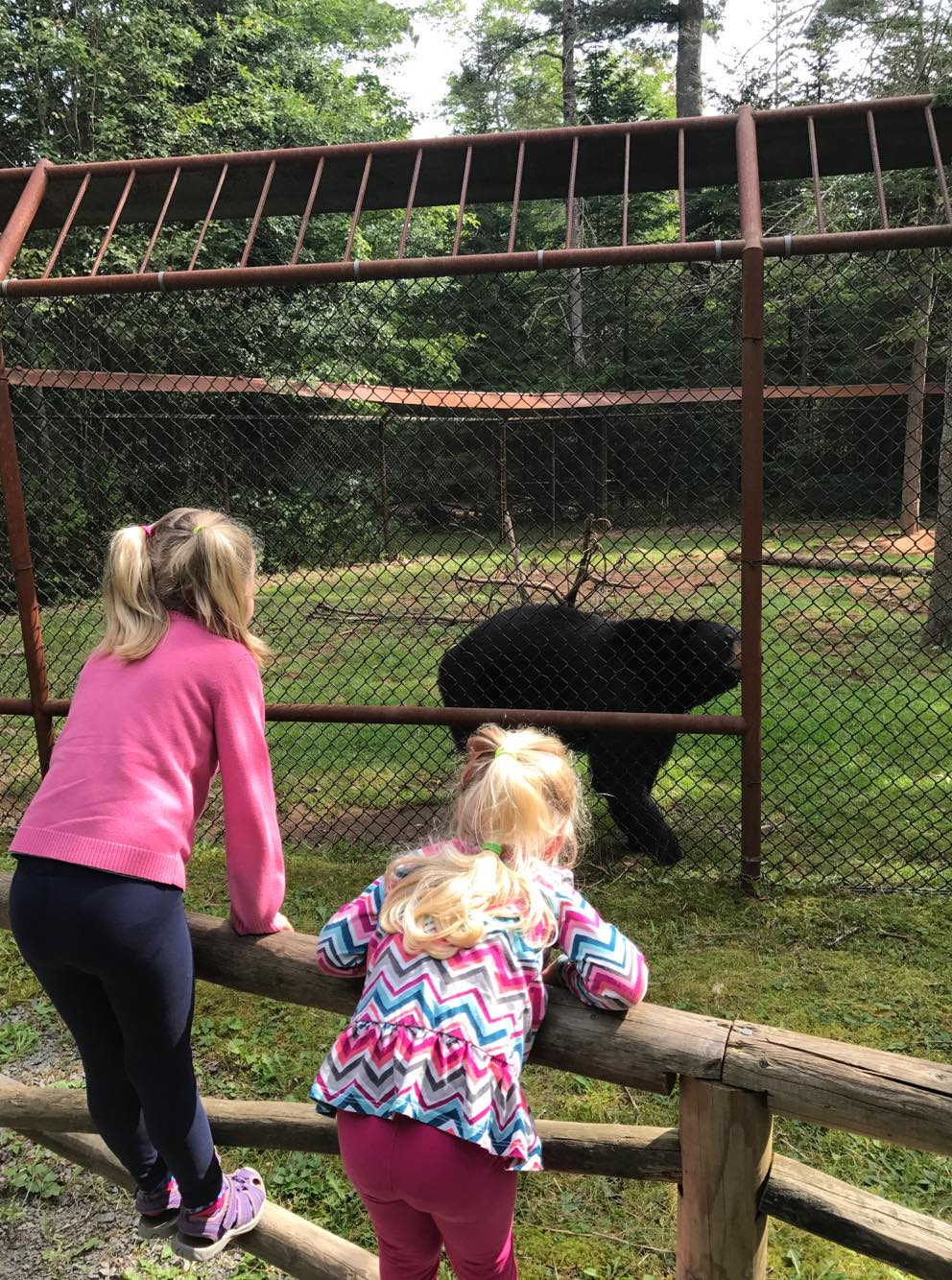
“I tried it for the first time at the ripe age of 31, In the spring of 2017.”
“It did put me off when it was illegal.
“I am a mom with responsibilities and a company to run. I am trying to be a good contributing person in society. Doing something illegal was never my plan.
“I even viewed cannabis as a drug, a ‘gateway drug’.
“It scared me, apart from the fact everyone I knew who used it was a good person, who was never hurting anyone.
“I was very worried about the negative impact of my cannabis use.
“Worried about being judged. Worried someone would complain to child services and try to get my children taken away. Worried we would be evicted from our rental.
“Worried about how my friends and family would react.
“Worried that this would negatively effect my children’s lives at school. I was even worried that other moms wouldn’t let my girls play with their kids because I was a cannabis user.
“All of these worries floating in my mind were not enough to stop me from using this miracle of a medication.
“No other medications helps my brain function the way cannabis does. This is how I imagine ‘normal’ brains function.“
– Laura Poirier, The ADHD Mamma
Thankfully, Laura was able to rise above the stigma, describing it as life-changing:
“For those without ADHD, the best description of cannabis and ADHD is:
“Imagine you are colour blind and someone gives you cannabis, and once you have used the medication, you can see all the colours of the rainbow!
“This is what cannabis feels like for my ADHD!

“It’s not a cure, but my goodness, it helps better than anything I have ever tried before.
“And, yes, I have tried everything: mediation, exercise, eating diets, medications, therapy etc.”
Laura discussed her amazement with how much cannabis changed her life:
“I cried a lot at the beginning. I was so upset at society for not allowing people with ADHD to have this as their main medication.
“No other medications helps my brain function the way cannabis does. This is how I imagine ‘normal’ brains function.
“I was able to find a doctor who would prescribe me cannabis by the autumn of 2017.
“At first, I only used cannabis infrequently to help with my math skills to play ‘cribbage’ with my husband.
“We love board games and spending time together playing these things. It’s our special time.
“Before my husband would have to double check my math. Every. Single. Time.
“As an adult, it can be embarrassing to have others need to double check your work. I felt stupid and wrong.
“With cannabis, I could do math on my own, rarely getting the math wrong.
“My husband still out of habit double checks my cribbage hand. But it’s rare that I miss a point now. (I win a lot more now too haha!)
Cannabis allows those with ADHD to function without being ‘zoned out’ from Methylphenidate, but does come with side-effects, like any medication.
Those who argue against cannabis legalisation claim that doing so could bring danger to our roads, with more people driving under the influence.
Laura, however, like any regular patient, takes necessary precautions to ensure her cannabis use does not pose a threat to society or her job, much in the same way someone prescribed with Tramadol would:
“For my daily routine, I have to work around my cannabis use and driving.
“If I’m going somewhere out of work hours, I will arrive, use my medical cannabis, and stay for two hours at least before driving again.
“Regular life normally looks the same: I Get up, feed kids, pack backpack and lunch, walk daughter to school, play with younger daughter at home, make lunch, etc., you get the idea.
“On the days where I can “wake and bake,” the whole morning routine works better and I can see my children smiling more and enjoying life! We sing and dance while we get ready.
“We smile more. Not just me, but others around me.
“I annoy people less and can be more considerate.”
One of the greatest changes cannabis has had on Laura’s life is her parenting.
ADHD suffers find it difficult in concentrating on one task, never mind multiple tasks at the same time, making ‘play-time’ especially challenging for parents with ADHD.
Since beginning her medical cannabis treatment, Laura told us how these challenges with raising her children have been eased:
“I love playing LEGO with my family when I use cannabis!
“LEGO is fun, but it comes with sensory issues which can be really problematic for us with ADHD.
“For example, it can get really loud when your digging for pieces, and it’s sharp and pointy on the corners, a really unpleasant feeling and sound.
“When I play with LEGO un-medicated it’s overwhelming to both play and talk to my girls. I had to choose one or the other.
“Now, with cannabis, I can choose both!
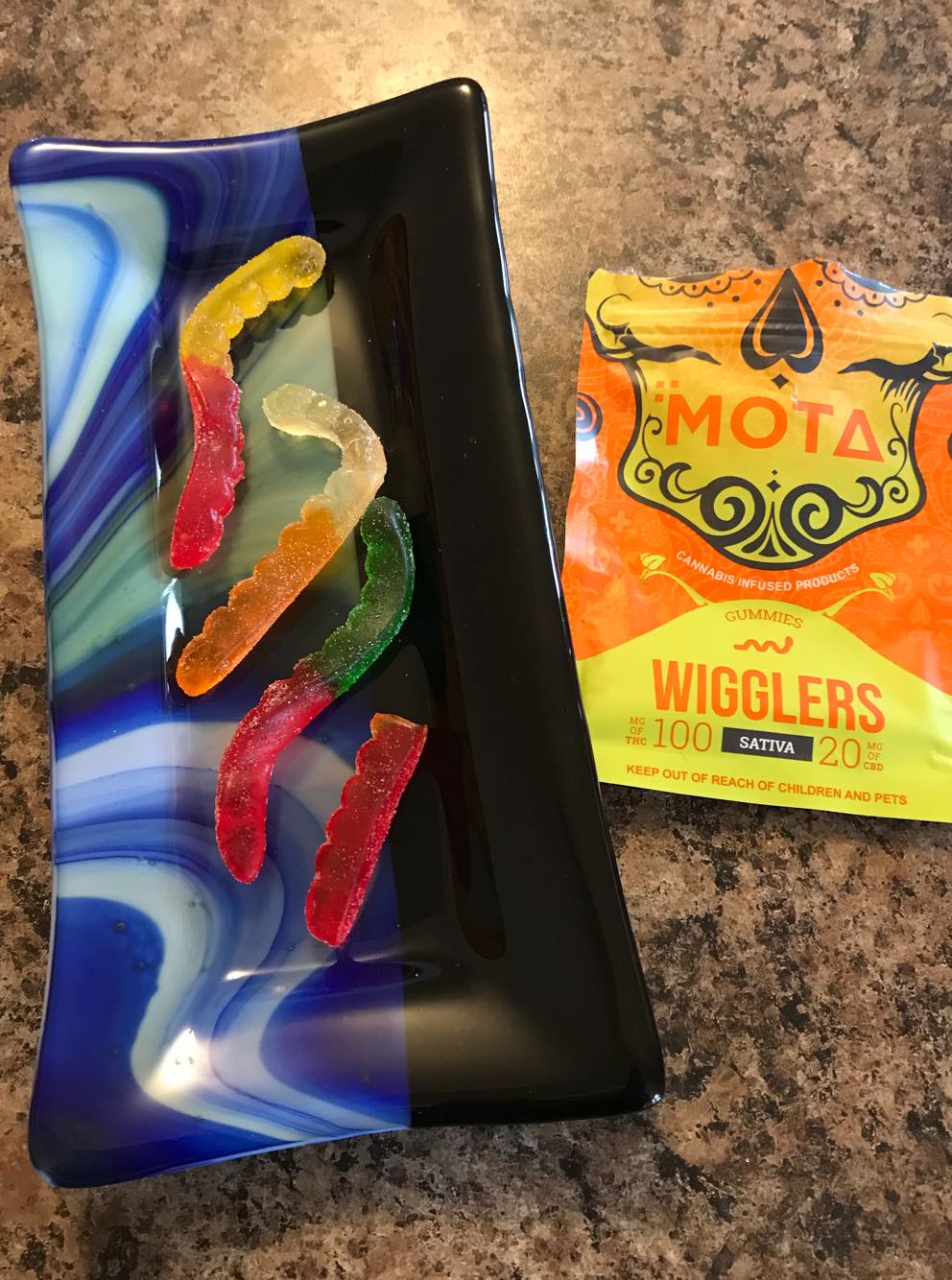
“I not only can filter out the sensory overload of noise and touch but I can focus on the girls as they learn and grow. Bouncing back and forth between playing with my own creation and paying attention to them as they request my attention.
“For my regular paperwork, cannabis is the best thing to ever happen to me.
“I don’t use cannabis when I’m teaching first aid in the classroom. Stigma sucks.”
Progressive states and countries around the world are legalising cannabis for both medicinal and recreational purposes. Canada has taken the unprecedented step of becoming the first country in the world to legalise cannabis in its entirety, a massive boost for medical cannabis patients:
“I live in Canada, so soon it will be legal for everyone to access. For now, I have my medical marijuana prescription. It is legal for me.

“I did try it when it was not legal, but I had to hide my use of it from the outside world.
“My husband knew, but he was worried how it would affect his job if they found out. It was stressful.”
ADHD is often diagnosed with other mental illnesses, particularly high anxiety and depression. Low self-value due to a perceived lack of worth, combined with a pharmaceutical medication known to cause depression, can be a deadly cocktail.
Laura explained how cannabis improved her mental health, allowing her to live life with a more positive outlook:
“The biggest relationship impacted by my cannabis was the relationship with myself. I don’t beat myself up about mistakes or ADHD issues anymore.
“The relationship it did not help with is the one with my parents.
“They do not agree with my cannabis use and ask me to stop posting online about it. They do not want me to stand out in the crowd. It’s causing them a lot of stress.” According to the Centers for Disease Control and Prevention (CDC) approximately 9.4% of American children 2-17 years of age (6.1 million) had ever been diagnosed with ADHD, according to a parent report from 2016.
In the UK, the prevalence of ADHD is lower, surveys of children between the ages of 5 and 15 years found that 3.62% of boys and 0.85% of girls had ADHD.
Millions of children across the UK and US could benefit from having legal access to medical cannabinoid treatments, whether that be full spectrum or CBD oil.
By denying these children access to a safe medication, we are condemning them to a life-time of potential addiction and depression.
Amazing mothers like Laura, however, are standing up to help raise awareness about how medical cannabis could how the potential to giving ADHD patients a more normal life, without forcing them to take hard drugs, like Methylphenidate.
You can support Laura’s journey through her personal blog: The ADHD Mamma.
“Cannabis saved my life”: American Grandmother loses over 10 stone using cannabis oil
“Cannabis saved my life”: American Grandmother loses over 10 stone using cannabis oil
- Jenice Gutierrez weighed over 20 stone before using cannabis oil
- The mother of 3 now weighs less than 10 stone
- Pharmaceutical medications caused Jenice’s incredible weight gain
- The grandmother is being forced to leave her family home for her family’s safety
An American grandmother has lost over 10 stone (151 pounds) thanks to cannabis oil.
Single mother of 3, Jenice Mckin Gutierrez, 46, from North Carolina, went from weighing 20 stone (282 pounds) to 9.6 stone (135 pounds) in less than two years.
Jenice credits her amazing weight loss to cannabis oil, which has helped her come off a cocktail of pharmaceutical medications.
Before beginning her medical marijuana journey, Jenice was diagnosed with Rheumatoid Arthritis, Psoriasis, Psoriatic Arthritis, OsteoArthritis, Diabetes, High Cholesterol, Severe Complicated PTSD. Stage 3 COPD, leaving her with 33% lung function.
Jenice explained how her conditions restricted her life:
“I couldn’t breathe. I was on Oxygen 24/7 and could barely make it to the bathroom.

“My children were taking care of me and I was waiting to die.
“I was obese, weighing in at 286 pounds.” Many patients who have turned to medical cannabis as an alternative to their pharmaceutical medications do so due to the numerous side-effects their medications have been causing:
“When I started on cannabis oil I was on about 14 medications including: daily Prednisone, Metformin, Pravastatin, OxyContin, Ozemprople, various inhalers… it was just on and on.
“My diabetes actually came from the Prednisone, and the Ozemprople was for side effects from arthritis meds such as Methotrexate, Indonethicin, Enbrel and Remicade that killed my body.
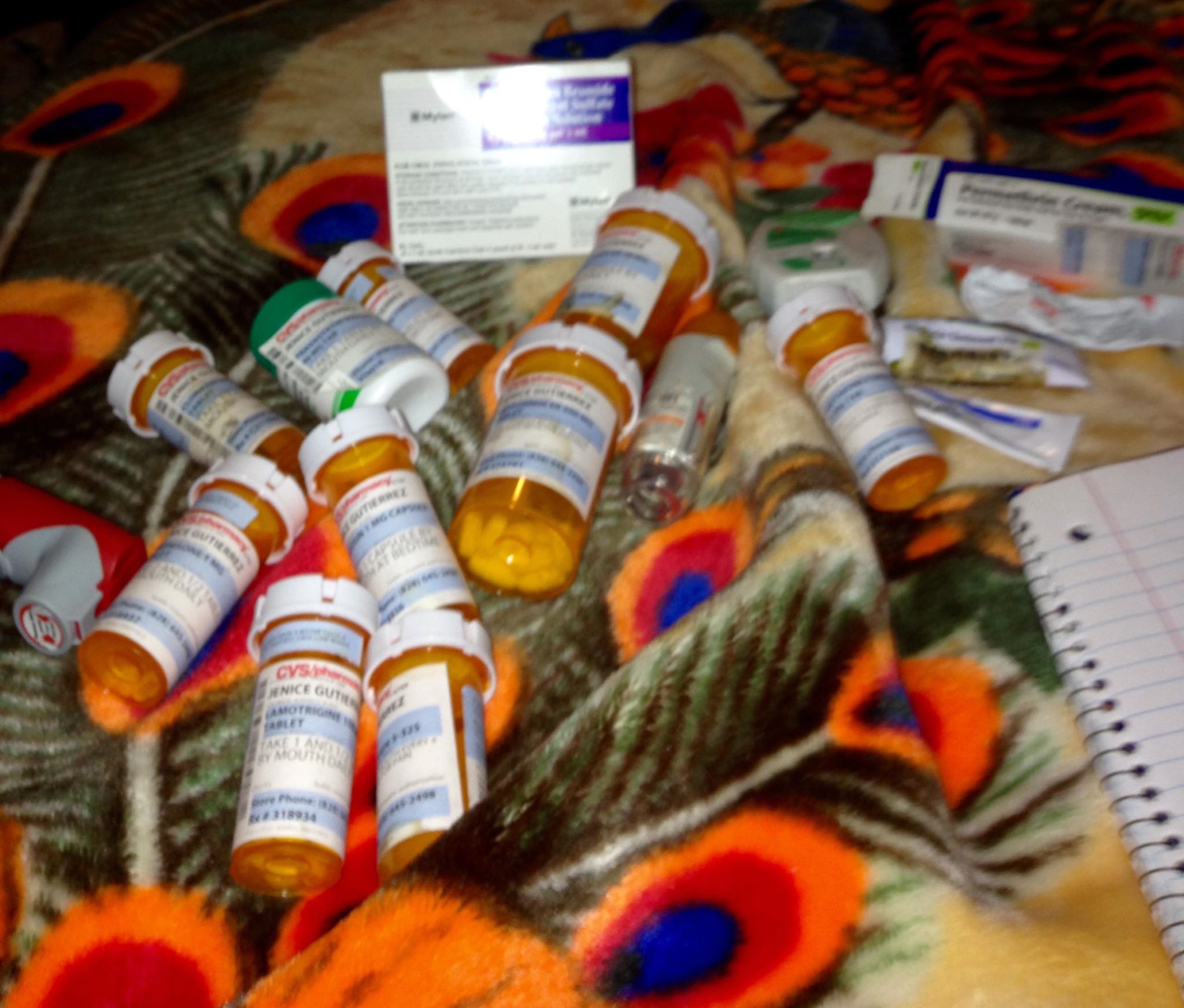
“I have been on a pharmaceutical roller coaster ride for years!”
Two years after ditching her pharmaceutical medications, Jenice’s life has completely turned around, for the better:
“My daily regimen is a rice grain sized drop of full spectrum cannabis oil and I smoke all day.
“I love edibles and I vape when I can get cartridges. I really love it all and believe in ‘Saturating’ my system.
“I am almost two years in and still seeing daily health improvements.
“I had nothing to lose as I had already started smoking marijuana to help me quit cigarettes, and accidentally discovered when I smoked Marijuana I could breathe better!
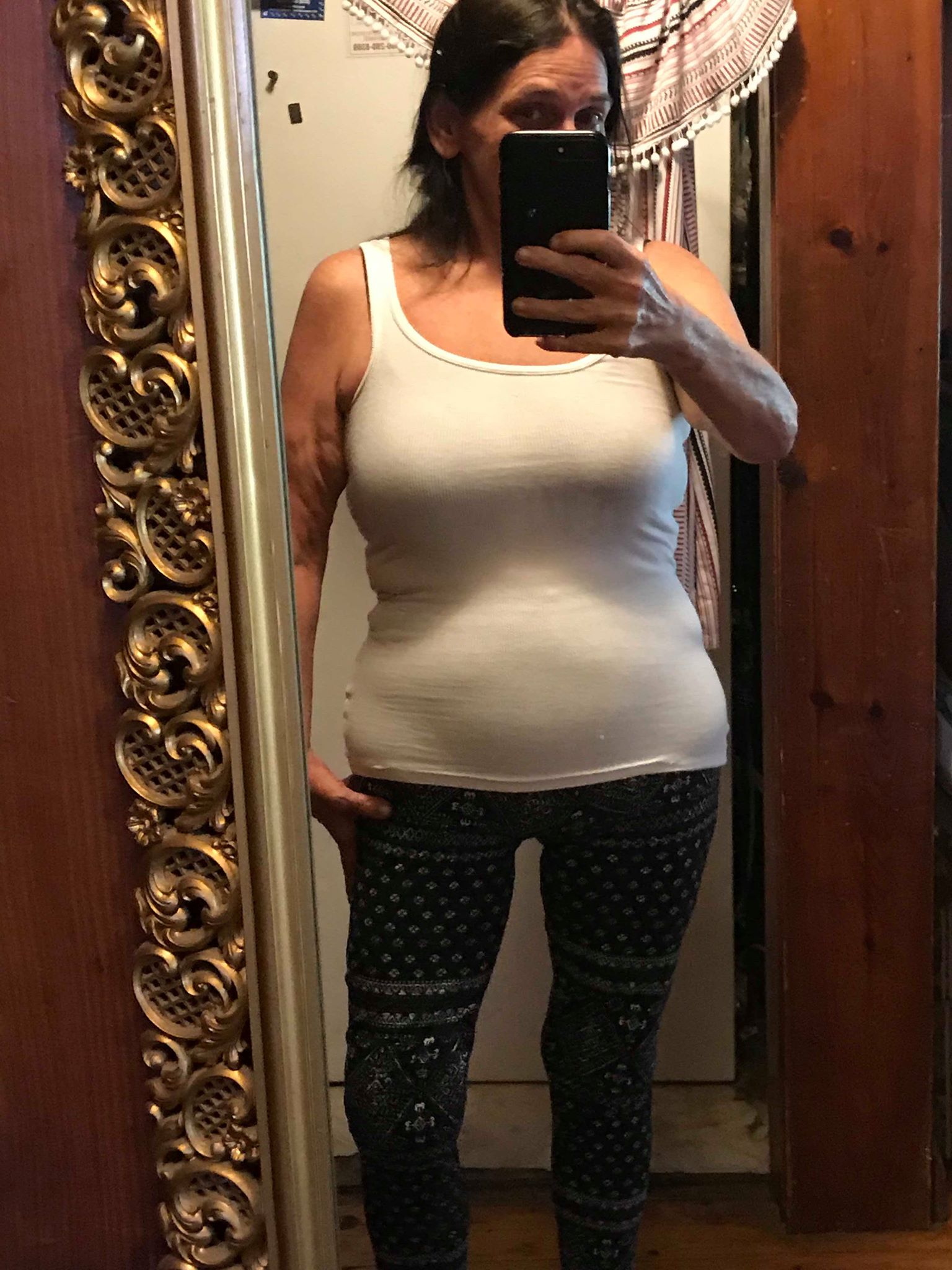
“I am coming up on my two-year cannabis anniversary and my 47th birthday, and I can tell you I have never been so healthy or so small!
“I still have some orthopedic issues from years of Rheumatoid Arthritis which leaves me a little crippled, but I work through that and lead a totally normal life.
“I have been off oxygen for almost as long as I started the Cannabis oil and that, in itself, is a freedom you can’t imagine. I call it ‘being off my leash!’
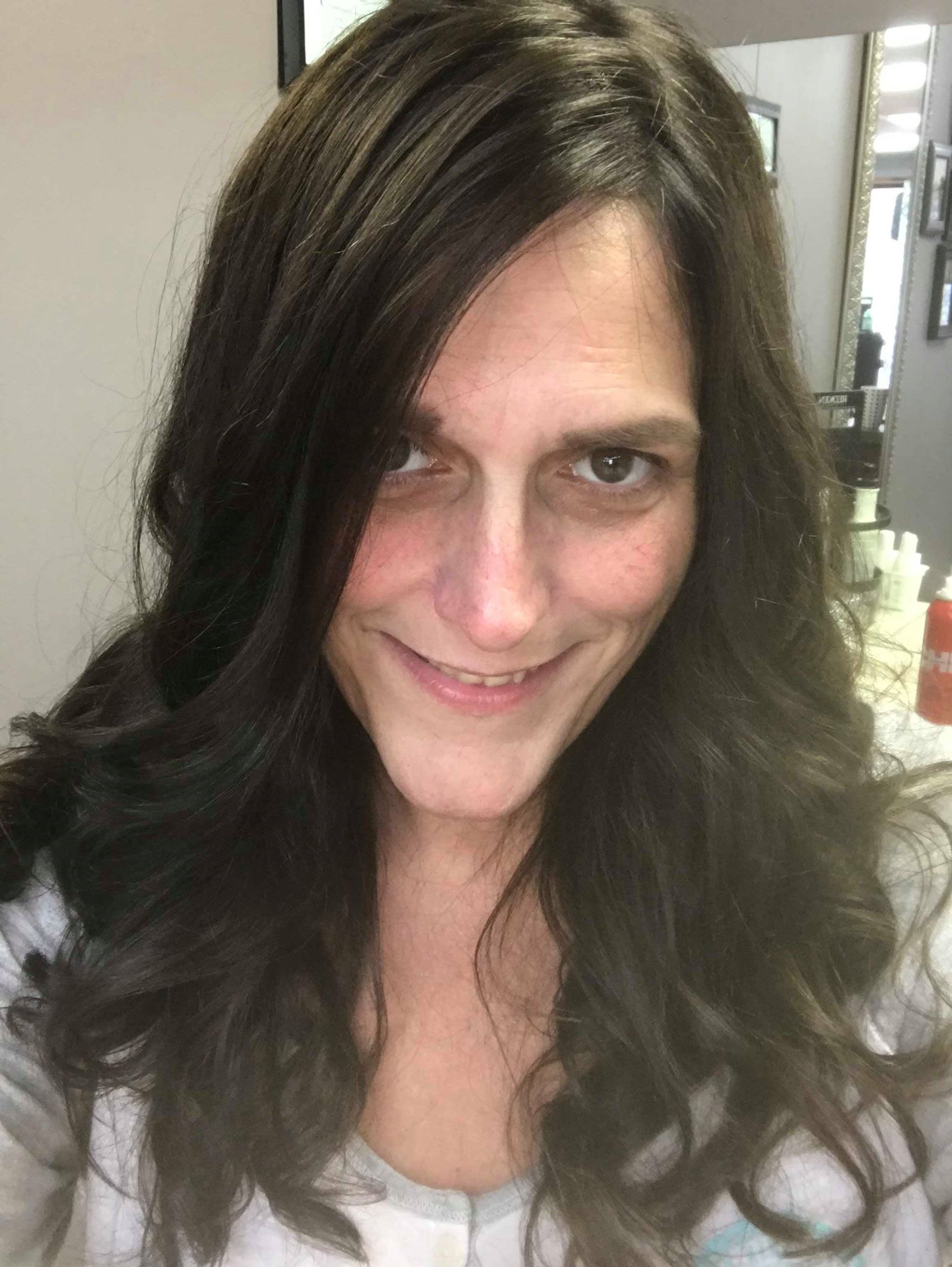
“I am exercising and leading a life that I didn’t even think would ever be possible!
“I am at 135 pounds!
“That’s a natural weight loss of 151 pounds thanks to cannabis oil!”
“That’s a natural weight loss of 151 pounds thanks to cannabis oil!”
– Jenice Gutierrez, Cannabis Warrior
]Due to years of anti-cannabis, “Reefer Madness” propaganda from World Governments against cannabis, there is still a negative stigma attached to the healing herb, putting many potential medical marijuana patients off from even trying the medicine.
Jenice was one of these skeptics before seeing cannabis save a loved one battling with cancer:
“Prior to a cancer battle with a child in 2014 I was very anti-cannabis and bought into the theory that it was a harmful substance.
“Seeing the way Cannabis kills cancer with my very own eyes was my moment of “Cognitive Dissonance”, my awakening if you will.
“Now I am officially out of the Cannabis closet and advocate for its broad legalization in this country and really for the entire world. No human should be denied this plant.
“I am living proof of its power!
Despite cannabis saving Jenice’s life, in more ways than one, the single mother is beign forced to move her family from their family home to a state where medical cannabis is legal and safe to consume.
“I am in North Carolina which is a totally illegal state located in the southern USA. I am smack dab in the middle of the Bible Belt and this country’s pharmaceutical capital.
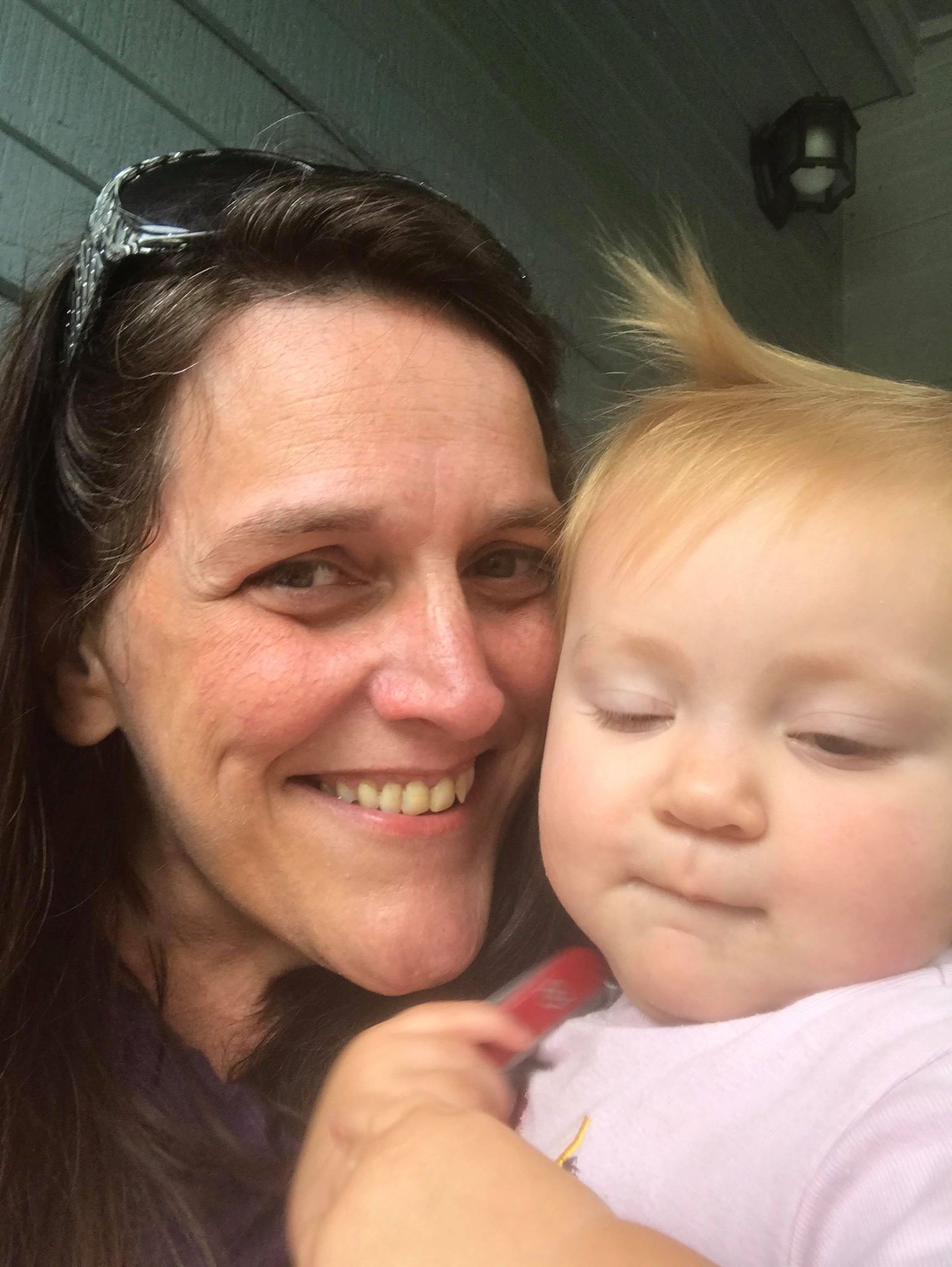
“Coming out of the Cannabis closet here has basically ruined my life and has come with great repercussions to my personal life, so yes, I absolutely feel like a criminal.
“I currently have my childhood home up for sale and I am looking to move to a legal state ASAP.
“I don’t want my Granddaughter to ever worry about it being legal and to always have safe legal access!”
While Jenice is able to stay within her own country to find legal access to medical cannabis, desperate British patients are not so lucky.
Without legalisation efforts, thousands of patients who could see similar results with cannabis are being forced into a lifetime of addiction to opioid-based pharmaceutical medications.
The scientific consensus is slowly building that cannabis is a safe alternative to these opioids, is it not time for our Government to listen to experts and compassion, rather than fear and greed?
Hero Scottish Mother risks jail to treat dying cancer-stricken daughter with medical cannabis
Hero Scottish Mother risks jail to treat dying cancer-stricken daughter with medical cannabis
- Sandra Munford, 53, risks everything for her eldest daughter, Kate
- Kate, 21, has had four major operations in the battle against a brain tumour
- Sandra spends £1,300 a month importing cannabis capsules from Canada
- Sandra now wants a change in the law to make cannabis products for medical purposes legal
A brave Scottish mother is risking everything to make sure her dying daughter can access medical cannabis.
Sandra Munford, 53, has seen her daughter Kate, 21, have four major operations in battle against a brain tumour.
After her daughter was given just three months to live, Sandra decided to start spending £1,300 a month to import medical cannabis oil from Canada to help keep Kate alive. Speaking to The Daily Record, Sandra explained the lengths she is willing to go to give her daughter the best fighting chance of surviving:
“I’m willing to do whatever it takes to ease Kate’s pain, even if it means going to prison.
“My daughter is dying and I’m in a desperate situation.
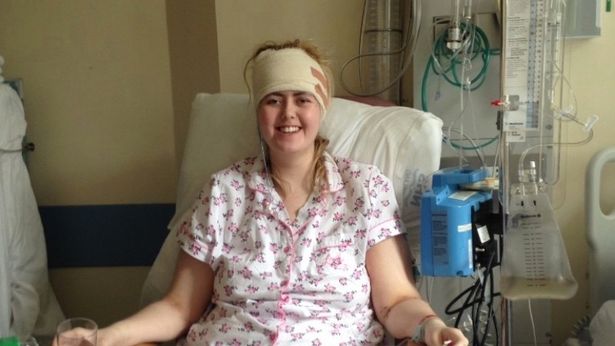
“We’ve tried every other treatment available and nothing has worked – this is our last hope.
“I’ve never broken the law before in my life but if it is going to help my daughter, I’ll keep doing it.”
Kate’s condition has deteriorated since her initial diagnosis, with her doctors telling her that theirs is nothing more they can do, leaving the brave young woman bed-bound, no longer able to eat or drink without help.
“I’m going to do whatever I can to give her every chance to beat this. If that means breaking the law, so be it.“
– Sandra Munford, Hero Mother, Cannabis Warrior
After five weeks of taking cannabis capsules from Canada, however, Kate’s condition has already begun to improve:
“Seeing your daughter fall apart before your eyes is heartbreaking.
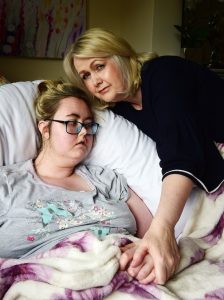
“Since she started taking cannabis oil, we are already seeing some positive changes.
“The right side of Kate’s body was completely frozen but now she’s slowly able to move her right leg and arm.
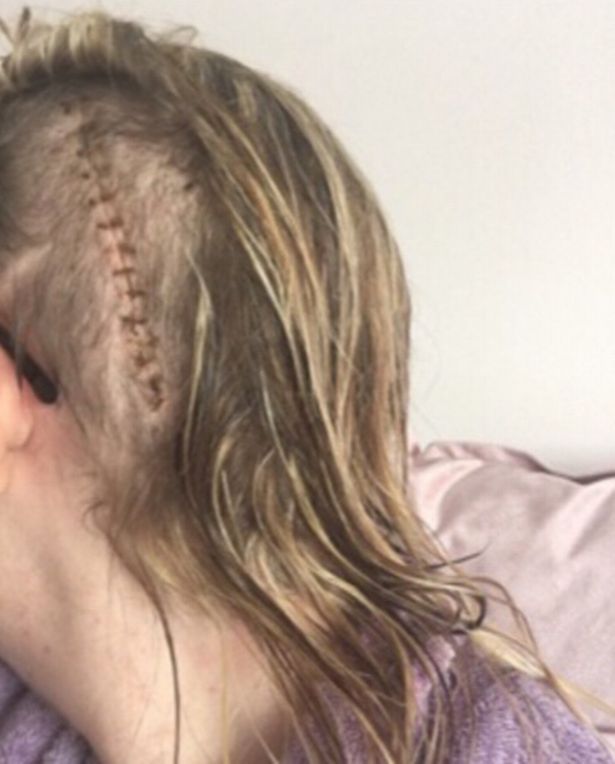
“Her mouth was also dropping down to one side and it’s now back to normal.
“There’s no doubt in my mind it’s down to the cannabis oil.
“Even the nurses who visit daily said they are noticing a difference, although it’s still early days.”
Inspired by her daughter’s recovery, Sandra is now campaigning to legalise cannabis for medical use, allowing desperate patients like her daughter easier access:
“It’s helping ease the pain Kate’s experiencing. We realise she’s still very ill but I know I’m doing the right thing.
“I’m going to do whatever I can to give her every chance to beat this. If that means breaking the law, so be it.
“Before she started taking the drug, things were so bad that we thought Kate wouldn’t last. She struggles to do the smallest things and it’s so frustrating for her.

“Her decline happened very quickly. In November, we thought she was going to be fine, and then she just went downhill.”
Sandra turned to cannabis when there seemed to be no hope.
Surgeons were able to remove 80% of Kate’s initial tumour, along with four litres of fluid.
Within months, however, the mass had grown back.
Radiotherapy and Chemotherapy tablets also failed to reduce the growth.
It was only then that the family began looking into medical cannabis.
While Cannabidiol (CBD) oil is already legally available through trusted sources in the UK, full spectrum cannabis oil, containing Tetrahydrocannabinol (THC) is still an illegal Class B drug, carrying a 5-year potential jail sentence if caught in possession.
Until the British Government legalises cannabis for medical purposes desperate patients, like Sandra, are going to be forced to spend their life savings on a medication which is relatively cheap to produce.
Share this article if you agree cancer patients like Kate should be allowed to choose their own medication.
Two new studies find opioid use lower in US states with legal cannabis
Two new studies find opioid use lower in US states with legal cannabis
- Two new studies found opioid use is lower when patients have access to cannabis
- Legalisation of medical cannabis led to a 6% drop in opioid prescriptions to Medicaid patients
- Legal recreational use led to additional 6% decrease: more access to cannabis = less chance of opioid addiction
- 64,000 people died due to opioid overdose in the US in 2016
- The UK has seen nearly a 100% increase in opioid-related death from 2012 – 2016
Legalising medical cannabis may be the answer to America and the UK’s growing opioid crisis, according to data from two new studies.
Evidence from the studies supports the increasingly popular argument that medical cannabis should replace dangerous opioid-based pharmaceuticals, as there are no known fatalities, or any serious side-effects, to the ancient herbal medication.
The studies compared opioid prescription patterns in states where patients have access to legal cannabis with those that have not. The first study, from the University of Georgia, investigated opioid prescriptions covered by Medicare Part D, which covers people 65 years or older and those with disabilities, between 2010 and 2015, to see if legalising cannabis would impact the prevalence of opioid prescription.
The study also investigated whether specific laws related to cannabis affected prescriptions.
Researchers found that associations between legalising cannabis and any opioid prescribing were “statistically significant”.
Medicare patients in states which allowed cannabis to be grown at home had 7% fewer (1.792 million) daily doses of opioid prescriptions filled compared to those with no legal access to cannabis.
Interestingly, the figured doubled to 14% (3.742 million) in states which had active cannabis dispensaries, indicating that the greater access people have to cannabis, the less likely they are to develop a dangerous opioid addiction.
Discussing the results of the study, W. David Bradford, a professor of public policy at the University of Georgia, said:
“…we found that the use of prescription drugs for which marijuana could serve as a clinical alternative fell significantly, once a medical marijuana law was implemented.
“National overall reductions in Medicare program and enrollee spending when states implemented medical marijuana laws were estimated to be $165.2 million per year in 2013.
“The availability of medical marijuana has a significant effect on prescribing patterns and spending in Medicare Part D.
“Physicians cannot prescribe cannabis; it is still a Schedule I drug.
“We’re not observing that prescriptions for cannabis go up and prescriptions for opioids go down.
“We’re just observing what changes when medical cannabis laws are enacted, and we see big reductions in opiate use.”[
“Marijuana is one of the potential, non-opioid alternatives that can relieve pain at a relatively lower risk of addiction and virtually no risk of overdose.“
– Hefei Wen, lead author on the Kentucky Medicaid study
The second study, from the University of Kentucky, also investigated the relationship between legalising medical and recreational cannabis and lower rates of opioid prescribing for Medicaid enrollees.
The study compared states with legal access to cannabis against those without.
Researchers found that laws which allowed people to use cannabis to treat specific medical conditions were associated with about a 6% lower rate of opioid prescribing for pain; about 39 fewer prescriptions per 1,000 people using Medicaid.
As with the study from Georgia, the Kentucky study found that states with the most access to cannabis, i.e. legal recreational use, had a further 6% drop in opioid prescriptions, indicating that to truly tackle opioid addiction, recreational use may need to be legalised.
Discussing the results, Hefei Wen, lead author on the Kentucky Medicaid study, said:
“We saw a 9% or 10% reduction (in opioid prescriptions) in Colorado and Oregon.
“In Alaska and Washington, the magnitude was a little bit smaller but still significant.
“Marijuana is one of the potential, non-opioid alternatives that can relieve pain at a relatively lower risk of addiction and virtually no risk of overdose.
“Our study provides some of the first empirical evidence that the implementation of medical and adult-use marijuana laws was associated with lower opioid prescribing rates and spending among Medicaid enrollees.” Both research teams conclude that while there is significant evidence to support the argument that legalising cannabis in its entirety is the best solution to tackling the opioid epidemic, in both the US and the UK, further research is needed before any concrete conclusions can be drawn.
While some states in the US are taking an active step to prevent the rise of an opioid epidemic, the UK remains solidified in its refusal to legalise cannabis, even for medical use.
The number of opioid overdose in the UK increased by nearly 100% in 4 years, from 1,290 in 2012 to 2,038 in 2016.
If the British Government are serious about their pledge to tackle this rising epidemic, they may need to consider legalising cannabis, not only for medical use, but across the board.
Help raise awareness of the power of medical cannabis by sharing this article.
References and further Reading
https://jamanetwork.com/journals/jamainternalmedicine/article-abstract/2676999?redirect=true
6 beginner tips for startup cannabis dispensaries
6 beginner tips for startup cannabis dispensaries
- Kate Harveston guides us through her Top 6 Tips for starting your own cannabis dispensary
Twenty years ago, if you had told someone you would be able to someday walk into a public store and purchase marijuana, they probably would have laughed in your face.
We’ve come a long way in a short time.
Legal access to marijuana, in one form or another, is becoming more and more possible, and if you guessed that the business of distribution is looking up, you’re right. But you can’t just start selling cannabis out of your home. If you want your dispensary to flourish, you need to know your market.
1: Understand How to Nail the Customer Experience
To drive engagement in the modern market, you need to have an online presence and engage with your target audience using social media.
This process can even begin before your official opening date if you use your website or social platforms to collect contact information from potential customers. Keep them coming back with promotions or interactive sessions such as cooking classes or yoga.
The staff of your dispensary will also ultimately determine whether customers have a positive or negative experience there.
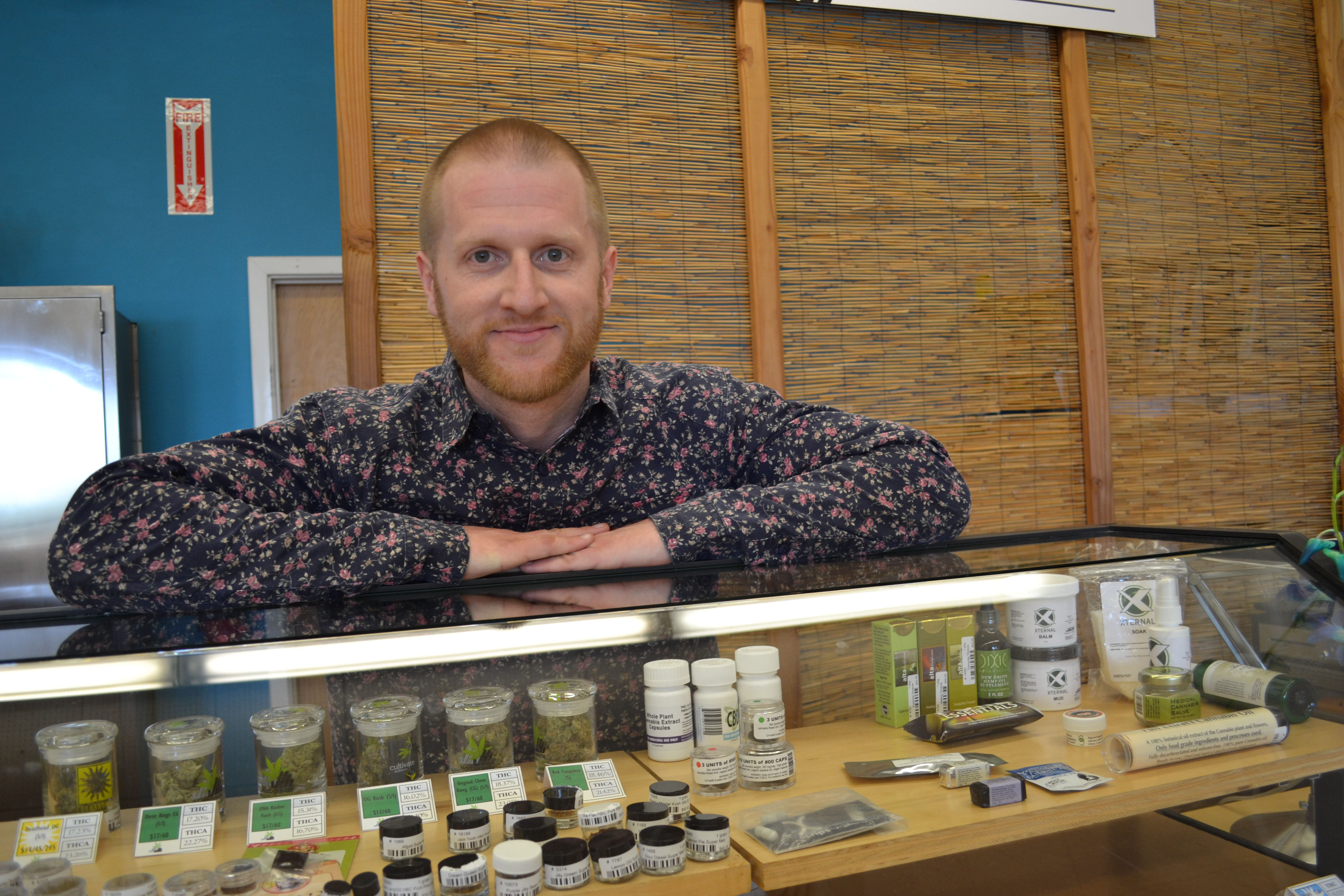
Recruit people to work for you who understand just as much about customer interactions as they do about cannabis strains.
2: Location, Location, Location
Sometimes it’s best not to overthink things. In some states, like Colorado, dispensaries are springing up overnight.
Many of these businesses will fail, and for some, it will be because they chose a location next to a gas station on an abandoned stretch of road.
You should aim to place your business in a space that is far enough from residential areas not to cause a commotion, but easy to access.
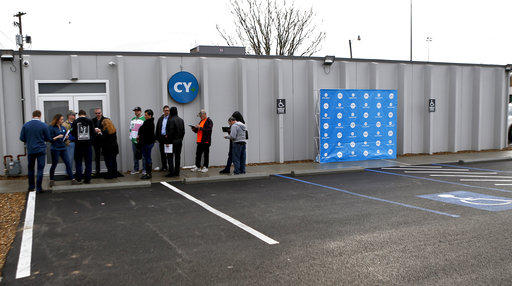
Choose a clean part of town close to other legitimate businesses. Also, understand the way state laws might implicate where you can and cannot operate a dispensary.
For example, in the Pennsylvania Commonwealth, only 27 permits will be allotted for the state.
Understand your local laws before moving forward with your plan so that you can ensure you have a chance at being successful and not wasting time and money.
3: Make your Space Presentable
If you’ve never seen a shady-looking dispensary, you can probably imagine what one looks like. You are creating a place of business, where people need to feel comfortable, so it’s critical your dispensary is presentable and clean.
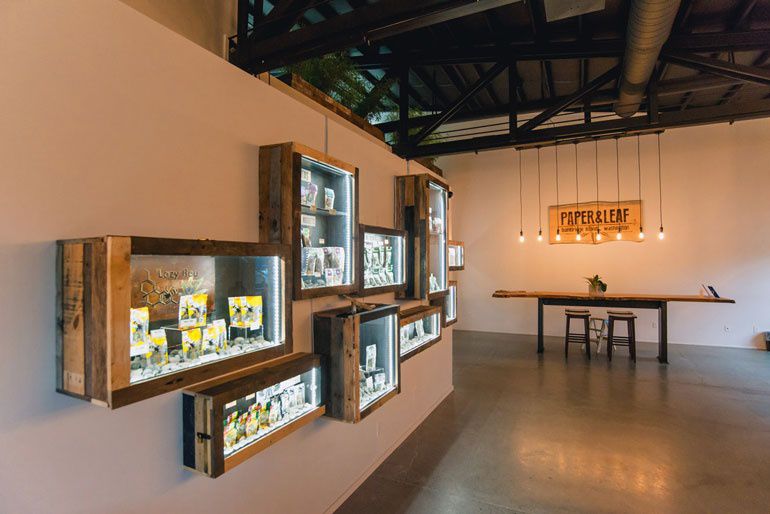
Make sure your space is ample enough for several patrons to visit the shop at once. Your shop should be well-lit, and your message should be geared toward the real benefits of the product you’re selling. This is not a head shop. It’s a place where people can come to feel better.
“Remember, this is just the beginning. Going into business for yourself will inevitably bring unique challenges, but hopefully, you’ll be on solid ground, ready to take them on.”
– Kate Harveston
4: Take It for a Test Spin
No matter how thorough your preparation, there will always be something you overlook when taking on the launch of a new business. That’s why you should hold a soft launch where you invite only family and friends to attend and feel out the space.
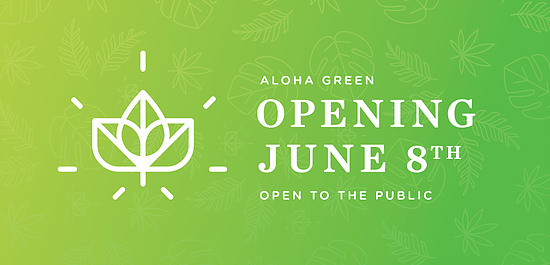
Make sure they move naturally in the space, can find and learn about products easily and can register with your business quickly and efficiently, if necessary.
You probably won’t be able to have actual cannabis available ahead of your opening date, and that’s no problem.
The point is to collect feedback in a comfortable environment, instead of a hostile one.
5: Be Secure
Any business needs to take security into account.
In the field of cannabis, the potential for theft is high.
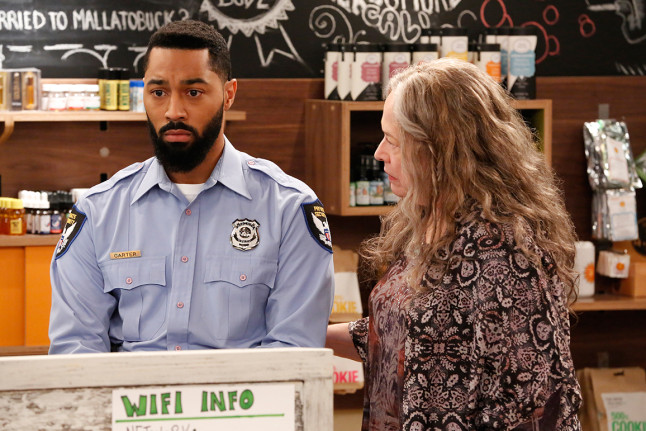
Many products are small and easy to shoplift, so install high-quality security systems that will keep shrink down and allow you to operate at ease with customers.
Keep your security measures discreet. It’s fine to have a few small cameras in the corner, but if your visitors feel surrounded by high-tech surveillance, they might get the creeps.
Protect your investment, but do it the right way.
6: Ensure Compliance
Before you open, it’s crucial to make sure the equipment in your shop is government-compliant.

If you choose not to ensure compliance, and a customer presses charges, you could face fines of $10,000 or more. So while the cost of a consultant might seem high at first, it’s worth the money.
Transparency should be the goal of your shop policies. Having confidence in your equipment is step one in allowing you to achieve that.
Remember, this is just the beginning.
Going into business for yourself will inevitably bring unique challenges, but hopefully, you’ll be on solid ground, ready to take them on.
Scottish mother’s plea for medical cannabis prescription for child’s severe epilepsy
Scottish mother’s plea for medical cannabis prescription for child’s severe epilepsy
- Karen Gray wants the NHS to prescribe her son cannabis oil
- Murray, 5, can suffer up to 12 seizures a day due to severe epilepsy
- Karen believes CBD alone will not stop the seizures
- THC remains illegal in the UK despite overwhelming evidence of its medical importance
- Karen shared a hallowing video of her son’s seizing to raise awareness
A desperate Scottish mother has made a plea for her epileptic son to be prescribed full spectrum cannabis oil on the NHS.
Karen Gray, from Edenborough, believes that cannabis oil containing both THC and CBD is her son’s best chance at a normal life.

Murray, 5, suffers from Myoclonic Astatic Epilepsy, also known as Doose Syndrome. Murray’s epilepsy is so severe that he can suffer up to 12 seizures a day.
Karen uploaded a video of her son’s seizures earlier this week to raise awareness of how debilitating epilepsy can be.
Karen told us how pharmaceutical medications did not help Murray’s condition:
“Murray has not responded well to the pharmaceutical medications he’s been prescribed.
“He’s been given steroids, then gastro tablets to help with the side-effects from the steroids, and three different types of epileptic medications.
“He’s even received intravenous drugs during seizures, but nothing is really working to help fully stop the seizures.
One of the appeals of medical cannabis is its lack of negative side-effects.
Patients like Karen are turning to the ancient healing herb due to the severe side-effects of their pharmaceutical medications:
“Murray has completely ‘blown up’ due to the steroids.
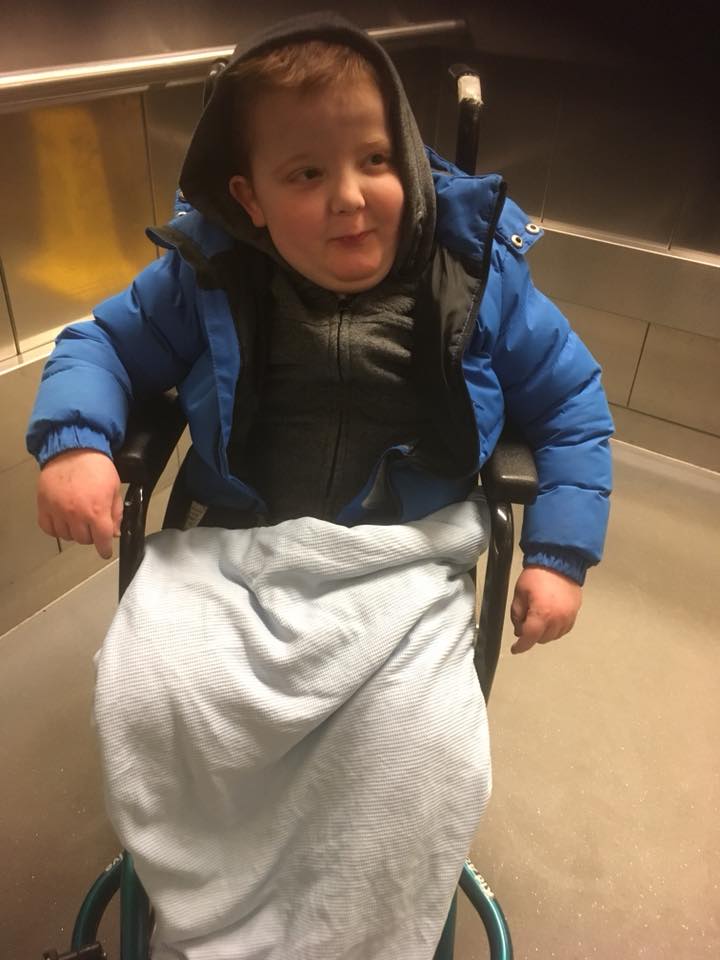
“His face and back all swollen up. They know this happens with steroids, but it’s just not acceptable for a five-year-old.
“He can get aggressive, especially when hungry, which is all the time! Murray can be hungry half an hour after having his lunch.” Doctors recommended that Karen put Murray on a ketogenic diet, which is high in fat and low in carbs and often undertaken to tackle the problem.
Due to the side effects of the steroids, however, Karen believes that the ketogenic diet is a ‘last resort’:
“We have a choice: either a ketogenic diet or medical cannabis.
“The ketogenic path would be completely impractical.
“Murray would be restricted in what he can eat, which, due to the steroids, would be impossible!
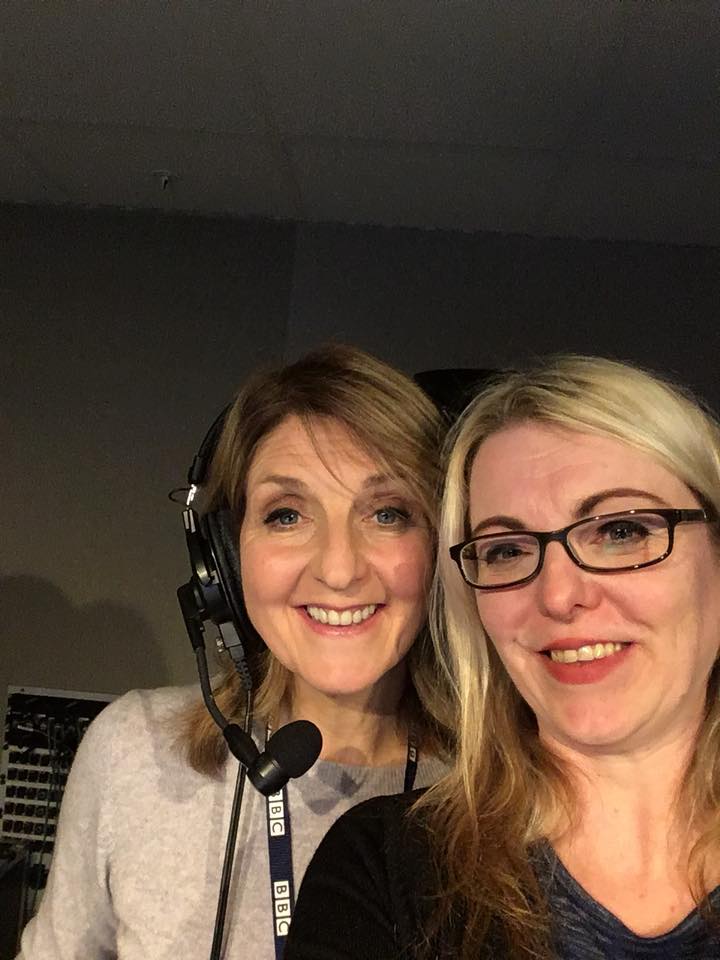
“He loves pasta, which would be banned, and there is a risk his blood sugar levels could drop because of the food.
“I would have to hand prep every meal, so there’s a good chance we wouldn’t be able to take him to parties, for a meal, a holiday, anything.
“I don’t want to put my son through that.
“I worked out that with a ketogenic diet, there would be a 33% chance of the seizures stopping. With cannabis, it would be 40%.
“Medical cannabis should not be our last option.”
While Cannabidiol (CBD), the cannabinoid most associated with treating epileptic seizures, is legal in the UK, Karen believes that a combination of THC and CBD will be needed to give her son the best chance of a normal life.
Karen could easily purchase CBD from a high-street, such as from AHED (Lancashire), but the mother has concerns about not doing it with a doctor’s guidance:
“Since our story made the headlines, we’ve had so many wonderful offers from so many CBD companies for free trials.
“But, with a prescription, we will be able to be monitored, for example, how Murray’s liver reacts to the new drugs.
“It will give me some reassurance having a medical professional guide us through the process. I want to get him off the other medications, which I will need guidance with.
“We have not tried any cannabis medication, yet. I want to do it in the right way.
“Mike Barnes, a fantastic neurologist, supports the argument that THC is a safe substance, so I feel like it is the right option to wait until we can access full spectrum.” Desperate patients have sometimes been forced away from the UK to access legal medical cannabis, becoming “cannabis refugees.”
Karen did not want to put her family through this:
“We could go to Holland to access legal medical cannabis, but I do not want to uproot our family, especially when I have two other children.
“We should be able to get it here and not separate the family!
“How can a Government deny the nation something that is going to help them?”
“What if it was a politician’s child?
“What if they had to watch their children have all these seizure, knowing their only option was pharmaceuticals which could have horrible side-effects?
“Would they not want to give their children medical cannabis?
“I’m sure they would in a heartbeat.”
You can support Karen and Murray’s cause through their official 38Degree’s Page
New Survey: No Clear Evidence Cannabis causes Schizophrenia
New Survey: No Clear Evidence Cannabis causes Schizophrenia
- Dr. Musa Sami is a British researcher at King’s College London
- Sami claims if cannabis caused psychosis increased rates of use would be reflected in more diagnoses
- Cannabis potency has increased since the 60s, yet rates of schizophrenia have stayed the same
- 2% of UK’s population regularly smoke cannabis (over 4 million people)
- Only 220,000 people are diagnosed with schizophrenia in the UK
Dr Musa Sami, a psychology research fellow at King’s College London, has made claims that there is no direct correlation between using cannabis and developing schizophrenia.
The argument that cannabis can cause users to develop mental illnesses, such as psychosis, is a common one used against legalising cannabis.
Theresa May used the argument during her election campaign, claiming that due to an increase in the potency of cannabis there is a greater risk of developing mental illness:
“What we’ve seen is stronger forms now being used – I think it can have a real impact on people in terms of their mental health.” Dr. Sami, however, is of a different opinion, arguing that if there was a link between using high strength cannabis and developing schizophrenia, we would have seen an increase in the diagnosis of schizophrenia in the UK.
Discussing the results of his research survey, Dr. Sami wrote in The Conversation: “cannabis use is common, while schizophrenia is relatively rare, affecting less than one percent of the population.
“Even if cannabis use were to double the risk, over 98% of cannabis users would not develop schizophrenia.”
While the prevalence of THC in street cannabis has exponentially risen since the 1960s, the level of those diagnosed with schizophrenia in the UK has remained steady:
“Since the 1960s, cannabis potency and rates of use have risen in many Western countries with high-potency strains now dominating the market
“If cannabis were a cause of psychosis, we would expect that, as this increased, rates of schizophrenia would increase alongside it. But this has not happened.”
By surveying cannabis users, Dr. Sami hoped to find an answer to why there was not a correlating increase in those diagnosed with schizophrenia and the increase in number of users and potency of cannabis.
“Even if cannabis use were to double the risk, over 98% of cannabis users would not develop schizophrenia.”
– Dr. Musa Sami, research fellow at King’s College London
“We asked 1,231 cannabis users about their experiences when they used cannabis and calculated a ‘pleasurable experiences score’ and a ‘psychotic-like experiences score’.
“We then asked the participants if they were continuing to use cannabis, or if they were thinking of quitting in the future.
“Those who reported the most pleasurable experiences continued to use the drug and had no intention of quitting.
“Those with higher psychotic-like experiences had either stopped or were thinking of quitting in the future.
“The experience you have with the drug determines whether you continue to use it or not, regardless of your age, sex, mental health history or other drugs you have used.”
Essentially, psychotic episodes experienced by schizophrenics, induced by cannabis, acts as a warning to the user.
Those who enjoy using cannabis, and have a positive experience, continue to do so; Those who do not have a positive experience on cannabis tend to stop use. The study concluded that:
“Cessation of cannabis use was associated with greater psychotic-like experiences, whilst continued cannabis users were more likely to report pleasurable experiences.
“Whereas former users clearly ascribed cessation to negative experiences, continued users who expressed intention to quit less readily ascribed the intention to negative experiences.”
UNODC data suggests that cannabis is used by 6.2% of the UK, roughly 4,030,000 people.
If cannabis use caused psychosis, then surely there would be a similar number of people diagnosed with schizophrenia as there are cannabis users.
According to a leading schizophrenia charity, Living With Schizophrenia: At any one time, about 220,000 people are being treated for schizophrenia in the UK by the NHS.
The numbers clearly do not add up.
However, there is an argument to be had that causation does not lead to correlation.
For example, there are 9.4 million smokers in the UK, but it is projected that only 62,832 cases of lung cancer (32,875 in males, 29,957 in females) will be diagnosed in the UK in 2035.
Dr. Sami admitted that more research will be needed before any definitive conclusions can be made:
“It is important to remember that, at this stage, this is a hypothesis, not a fact.
“The survey was taken at a single point in time and the online sample we had may be different from the average cannabis user.
“But this group were moderate to heavy users, drawn from activist sites and social media – those that we need to engage the most in this kind of work.”
This recent survey puts yet another nail in the coffin for the argument that cannabis use causes schizophrenia, and, in turn, the argument against legalising cannabis, especially for medicinal purposes.
If cannabis does not cause mental illness, then on what grounds would a Government have for maintaining its prohibition of it?
The best study to confirm the hypothesis would be a long-term study mapping cannabis experiences to schizophrenia risk, drawn from the general population, but this would be a long and expensive study to do.
Dr. Sami and his team of researchers are continuing their investigation into cannabis use and mental illness.
If you want to help their research, you can participate by filling out their questionnaire at: thecannabissurvey.com
Malta votes to legalise Medical Cannabis
New Survey: No Clear Evidence Cannabis causes Schizophrenia
- Malta becomes latest European country to legalise cannabis for medical uses
- Three conditions qualify: chronic pain, MS, and cancer
- All forms of medical cannabis will be available, including raw plant
- CBD will fall under the same category, meaning it cannot be sold over-the-counter
- €30 million will be invested in the country by 5 Multinational cannabis companies
Malta has become the latest European country to legalise cannabis for medical purposes.
Amendments made to the Drug Dependence Act (Treatment not Imprisonment) Bill were voted on last Thursday, 23rd March, by Maltese parliament after its third and final reading.
The Bill will allow patients to be prescribed medical cannabis by their family doctor, if they qualify under the new Bill. Currently, there are only three qualifying conditions which would make a patient eligible to be treated by medicinal cannabinoids: chronic pain, pain and nausea associated with chemo, and spasticity in multiple sclerosis.
While cannabis will be available in its raw plant form, the majority of patients will be prescribed synthetic cannabinoids, such as Sativex.
Abusing your medical card by smoking the raw plant, as opposed to vaporizing or baking into an edible/oil/tincture, could result in the loss of legal access.
Control cards will be provided to qualifying patients once approved by the Superintendent of Public Health.
“One step closer to introducing law regulating production of cannabis for medicinal&research purposes as discussions in committee have been concluded.“
– Chris Cardona MP, Minister for the Economy and Deputy Leader for Party Affairs Labour Party
Patients will be able to purchase medical cannabis from pharmacies with their prescription, just like any other medication.
Cannabidiol (CBD), the non-psychoactive cannabinoid which is legally available across the EU over-the-counter, controversially will fall under the same restrictions as full-plant extracts.
Medical cannabis will provide a huge boost to Malta’s economy, with five contracts worth over €30 million already being given to multinational companies to produce cannabis within Malta.
Malta Enterprise has approved five projects related to the production of medical cannabis with a total investment of €30 million, creating 185 new jobs in the cannabis industry.
Three of the companies are Canadian while the others are Australian and Israeli.
The terms of production of medical cannabis are currently in the final stage of discussion in parliament.
While more and more EU countries are legalising access to medical cannabinoids, the British Government remains defiant in the face of scientific fact.
Share this article if you agree that British patients should have legal access to medical cannabis.
Dee Mani: "Cannabis oil, Not CBD, Saved Me,” Cancer Survivor Furious at Media Misreporting Her Story
Dee Mani: “Cannabis oil, Not CBD, Saved Me,” Cancer Survivor Furious at Media Misreporting Her Story
- Dee Mani’s story made headlines earlier this year after she cured her breast cancer with full-spectrum cannabis oil
- The brave British mother refused chemotherapy, opting to use only one drop of cannabis oil a day
- Alt-Right medias, such The Daily Mail, have been accused of mispresenting her story
- Articles claim the mother used CBD, not THC+CBD, to cure her cancer
- Adverts for Holland & Barrett’s CBD oil has been placed in many articles about Dee’s story
- We exclusively reveal the truth behind Dee’s inspiring victory over cancer
Dee Mani made headlines earlier this year when she revealed to the media that she had “cured” her breast cancer using cannabis oil.
The British mother, 44, was diagnosed with Grade 3 Triple Negative Breast Cancer on 16th March, 2017.
After losing her sister to chemo, and spending 5 years training as a pharmacist, Dee decided to opt out of the traditional treatments in favour of a combination of surgery and medical cannabis.
Dee was given the all-clear in August, 2017, claiming that her win over Cancer was due to the cannabis oil she had been treating herself with.
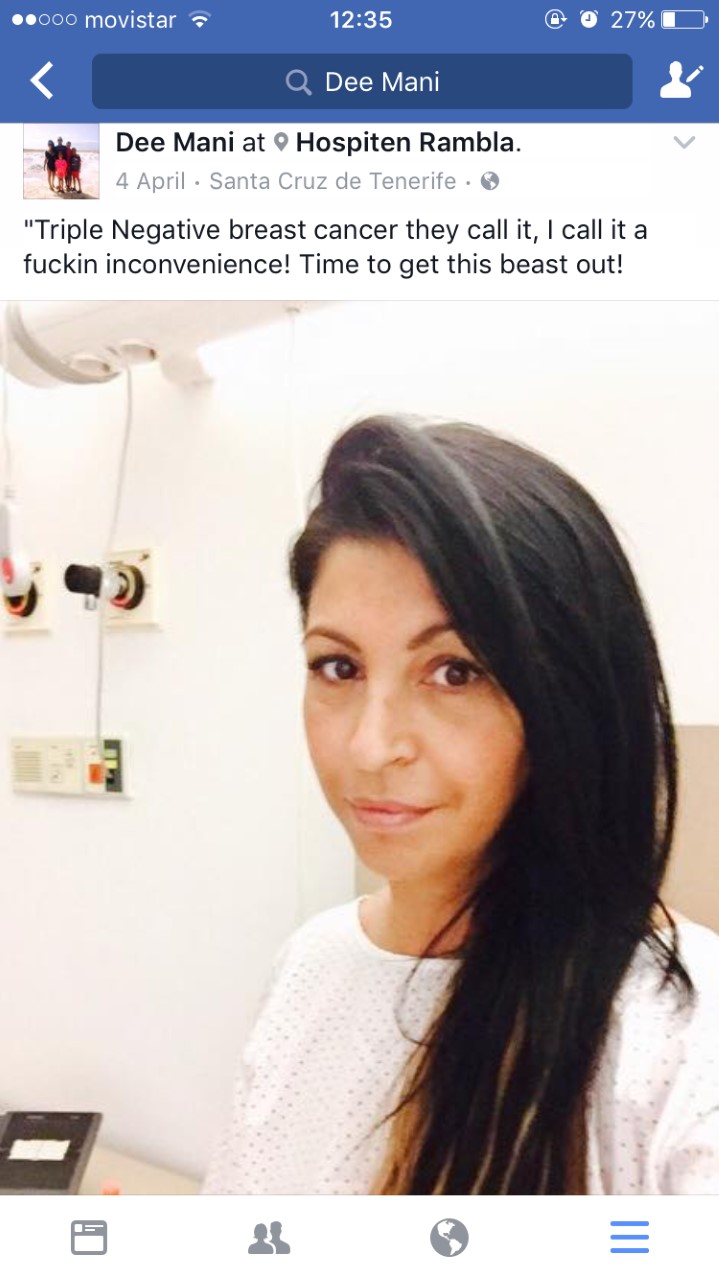
Fast-forward to 2018. Several mainstream media outlets had picked up on Dee’s amazing story, offering her the chance to raise awareness about how important medical cannabis was to her survival.
This opportunity, however, never came to fruition. Dee realised that her story was being used to mislead the public and, effectively, being used to sold Holland & Barrett’s CBD products.
We caught up with the heroic mother to let her set the record straight: Full spectrum cannabis oil saved her from cancer, not CBD-only products. Dee explained to us that she came across medical cannabis treatments accidentally, while researching alternative treatments to chemotherapy, which she believes killed her sister when she had cancer:
“After I was diagnosed, I spent the next few weeks having a range of different tests and scans.
“It was during this time I started researching into alternative medicine, I was adamant I didn’t want chemotherapy after it failed to keep my sister alive a few years prior.
“At first a few people close to me mentioned trying medical cannabis, which led me to look into it.
“During my research, I came across an older lady in America who had cured her own Triple Negative Breast Cancer with cannabis oil.

“I then discovered Rick Simpson and The Truth About Cancer and The Sacred Plant docuseries.”
Due to the intense level of Reefer Madness in the UK, many are still of the belief that cannabis is a ‘scary,’ drug, linked to mental illnesses such as psychosis and paranoia.
“I had smoked a few joints when I was younger,” Dee told us, when discussing if she was worried about trying medical cannabis, “so I was well aware of the psychoactive compounds.
“I was more worried of the thought of having to use chemo if alternative medicine didn’t work.”
Cannabis oil, however, was not the only treatment Dee received to help cure her cancer.
“I had a lumpectomy which was the only medical intervention.
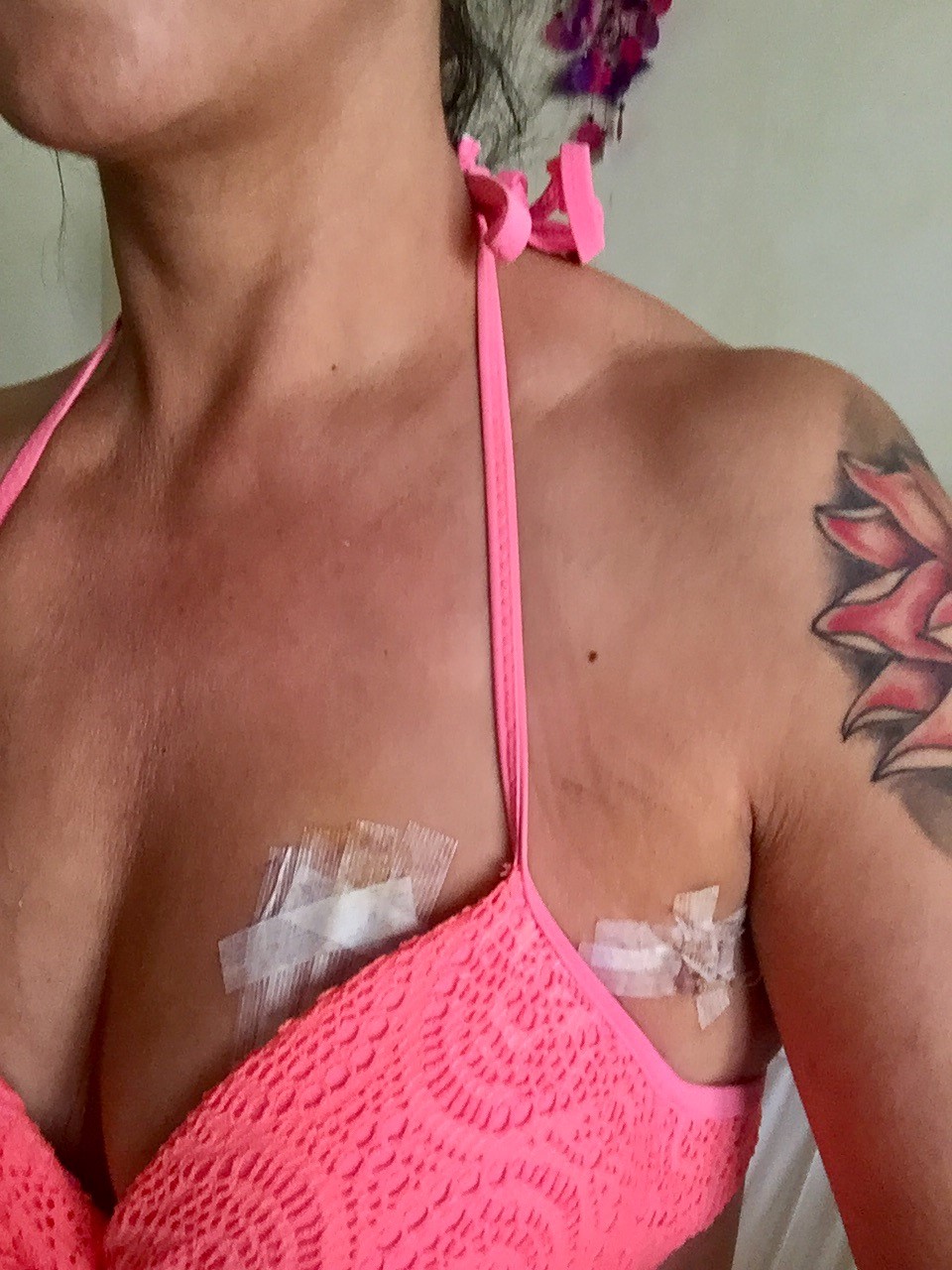
“My oncologist expected me to have a combination of chemotherapy and radiotherapy for 12 months.
“Apparently Triple Negative doesn’t respond to any anti-cancer drugs and following the lumpectomy there would still be cancer cells left over.
“I refused the chemo and rads, and was given the all clear 14th August, 2017!”
Dee’s inspiring story could have been a major catalyst in changing the negative public perception on medical cannabis, helping to raise awareness of the ancient medical herb’s potential use as a cancer treatment.
Instead, Dee’s story was used to generate clicks for Alt-Right news outlets, such as The Sun and The Daily Mail, and as an advert for Holland & Barrett’s CBD products.
“I’m annoyed as hell that The Daily Mail (who ran the article first) chose not to disclose that the oil I use is FECO with a very high THC level. Instead, they decided to print that I only used CBD!“
– Dee Mani, Cancer Survivor/Cannabis Warrior.
Discussing her views on the mainstream misrepresentations, Dee told us:
“I’m annoyed as hell that The Daily Mail (who ran the article first) chose not to disclose that the oil I use is FECO with a very high THC level.
“Instead, they decided to print that I only used CBD!
“They even mentioned that my oil didn’t get me high, which of course it does.
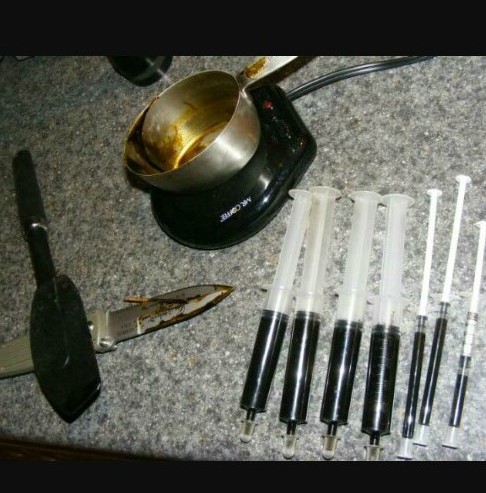
THC is illegal in the UK
“Following on from the original article the same story went viral globally, it became out of my control to get my correct message across.
“I was then approached by Love It magazine.
“I agreed to another article on the promise that they would use my correct details and I was able to proofread the details before it went to press.
“The article was 100% true and had all the correct details, however, they chose to put a Holland and Barrett advertisement for their CBD oil right smack bang in the middle of the 2 page spread!
“I contacted editors from both The Daily Mail and Love It and I’m yet to hear a response from them.
“I was also informed that as long as the journalists don’t change my actual quotes (which they hadn’t done) they are free to ‘tweak’ the stories to suit their reader… unfortunately, The Daily Mail believed that mentioning THC as an illegal substance would be too controversial for their readers.”
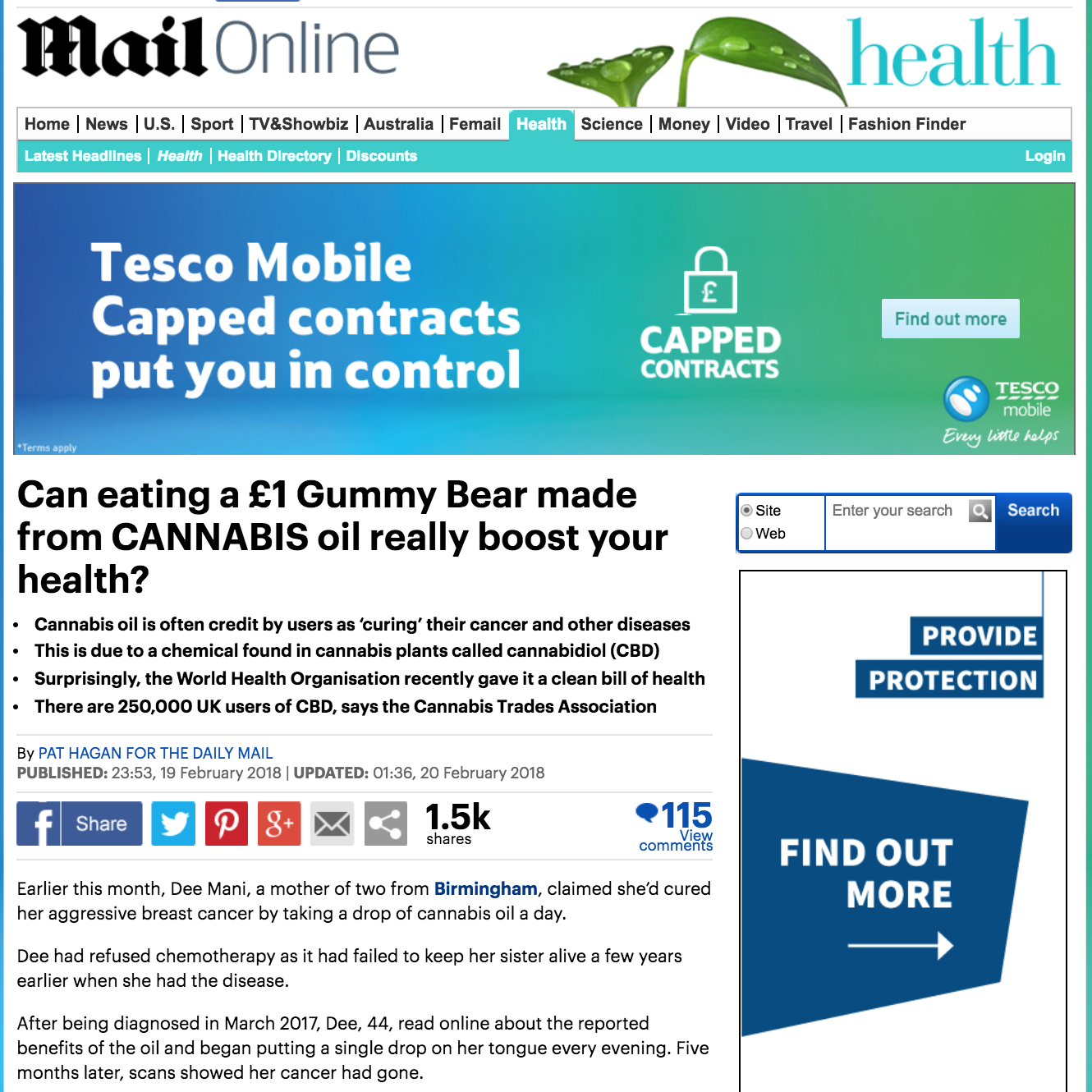
The Daily Mail is the UK’s most read newspaper.
Millions of people read their website every year. Millions of people could have been potentially misled by their coverage of Dee’s story.
Placing discussions about CBD oil within articles on Dee’s story has the potential to misled readers into thinking they too could cure their cancers using legal CBD oils.
“It may be a coincidence but as soon as my first article was featured,” Dee explained, “the day afterwards, H&B was all over the mainstream media, with headlines misleading people that their CBD oil cures cancer.

The Daily Mail advertising H&B next to a cannabis oil story is, as Otto puts it, “flagrant false advertising”
“They have simply jumped on a hype to gain bigger profits, most of their stores sold out in an instant!
“H&B are giving false hope to cancer patients all over the world and I think it’s an absolute disgrace!
“I would never advise a cancer patient to use CBD oils. I strongly believe that THC is vital.
“Each cancer type reacts differently to different ratios, for instance, I knew that Triple Negative responds best with a very high THC, however, I also understand that estrogen-positive types of breast cancer respond better to a lower THC ratio.” Cannabidiol (CBD) has experienced a recent boom in the UK, around 250,000 users in the U.K., double the 125,000 in 2016.
THC, however, remains illegal with no sign of being legalised or decriminalized while the Conservatives hold office.
THC, they argue, can lead to addiction to harder drugs and the development of severe mental illnesses.
Stories like Dee’s, however, illustrate how wrong our Conservative Government truly is when it comes to drug laws.

Dee explained to us that cannabis not only helped cure her cancer, but has helped her in other aspects of her life:
“Whilst I’ve always considered myself to be healthy, I’ve always suffered from insomnia to the point where I was prescribed valium.
“I also have 3 slipped discs in my back, from an injury that occurred almost 20 years ago. Since then, I’ve been on medication daily to alleviate the pain.
“I also suffer from allergies (dust, pets, pollen) and needed antihistamines again on a daily basis
“Since I started the oil, I’ve not had any sleepless nights, I’ve had no back pain and I rarely ever need to take an antihistamine!”
It did not take long for Dee to notice the changes:
“The sleepless nights went straight away after my very first dose, the back pain and allergies seemed to disappeared after a couple of weeks.
“Around 2 months after I started taking the oil I felt healthier than I ever had, I couldn’t actually believe that I had cancer because I felt so well.
“Medical cannabis saved my life!
While the anti-cannabis campaign by Alt-Right news outlets has scared many unfortunate people into believing that cannabis is an ‘evil, psychosis causing drug,’ Dee was unfazed by the negative reputation the herb has:
“The fact that cannabis oil is illegal did not for any minute affect my decision.
“I started to grow my own plants to produce the oil.”
“I even decided to inform the police of my harvesting for fear of a neighbour contacting them.
“They advised that I was able to have at least 25 plants for medical reasons.”
Despite the purposeful campaign to use Dee’s story to sell CBD for Holland & Barrett, the public reaction Dee received for standing up has been a largely positive one:
“The public feedback has been absolutely amazing!
“I’ve had people from all over the world congratulating me on my success and asking for advice on them medicating themselves using cannabis oil.
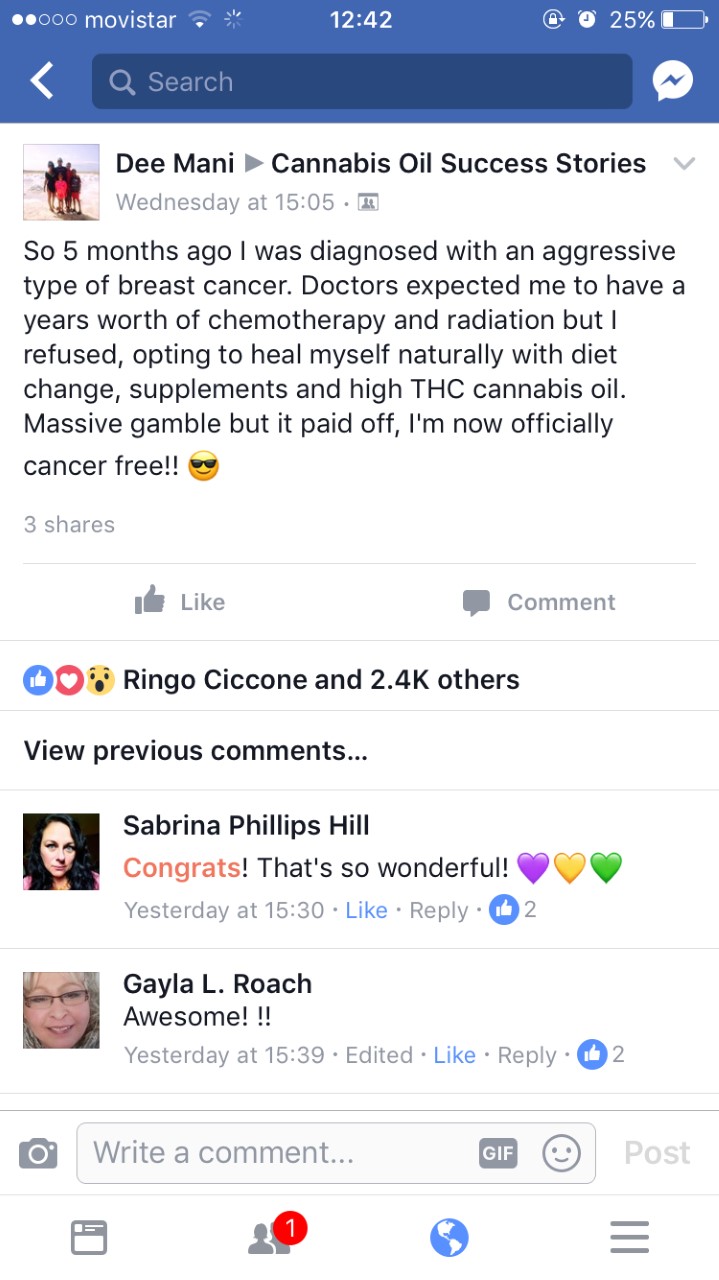
Over 2,000 people offered their support to Dee when she announced she cured her cancer with cannabis
“There are so many people touched by my story that are now rooting for this natural plant to finally become legal again.
Asked what message she could pass onto other 350,000+ British citizens diagnosed with cancer each year, Dee replied:
To simply educate yourself on everything and anything to do with cancer.
“Understand why you developed cancer in the first place and what you can do to firstly rid it from your body safely, and secondly, make sure you take measures to prevent a recurrence.
“Don’t be afraid to disagree with your oncologist and be proud the have your own opinion.
“Most importantly, believe in the power of medical cannabis!”
Cancer survival stories like Dee’s often miss out some key details, with many left thinking that cannabis alone was what cured the cancer.
Cancer survivors, who utilise medical cannabis, often make significant changes to their lifestyle, alongside cannabinoid treatments.
“Along the cannabis oil,” Dee explained, “I completely changed my lifestyle.
“I quit smoking, cut down on alcohol, ate a plant-based diet, juiced daily, took supplements such as turmeric, vitamin C, garlic pearls and biotin.
“I took essential oils such as frankincense, oregano, wormwood and lemon oil.
“I meditated and took frequent salt baths.”
Dee Mani bravely stood up in the face of public persecution and told the world that cannabis oil, containing high levels of THC, saved her from cancer.
Unfortunately, vultures decided to use her story to generate clicks on their website and sell CBD oil from Holland & Barrett’s.
If the Alt-Right media goes unchecked, millions of desperate cancer patients may be misled into purchasing CBD thinking it contains the same anti-cancer properties as the cannabis oil Dee used to save her life.
Over 350,000 British citizens are diagnosed with cancer each year in the UK, with over 165,000 of them dying.
Hundreds of thousands of innocent lives could be helped by legalising access to full spectrum cannabis oil.
Hundreds of thousands of innocent lives could be lost due to misleading articles.
Help us tell the truth about Dee’s incredible story, and raise awareness about the true medical potential of THC, by sharing this article.
Dee’s amazing story can be read in full in her tell-all book: “My Way: Following the cancer brick road, from diagnosis to all clear naturally in 5 months…”


